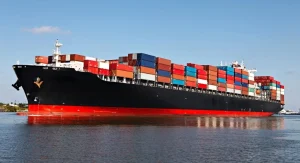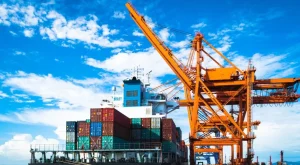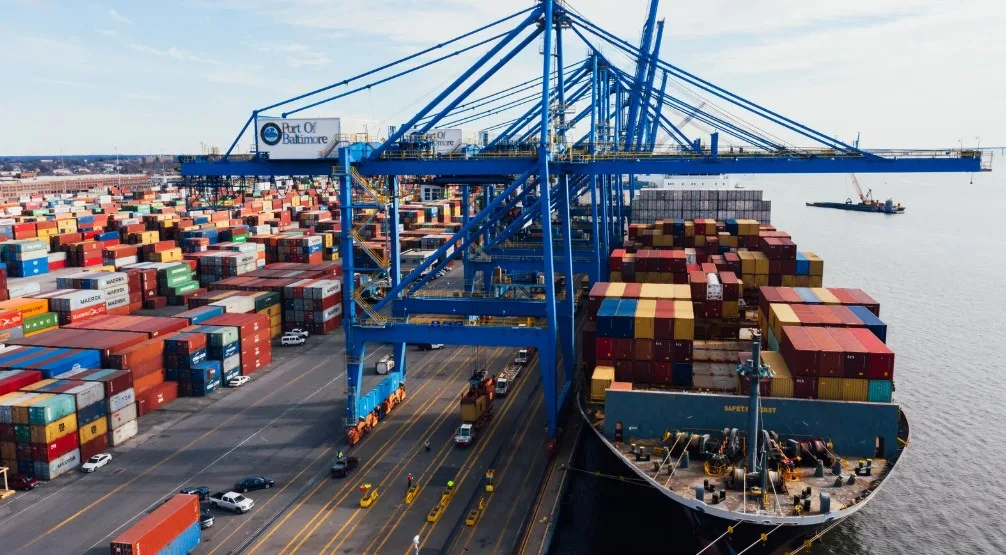Table of Contents
ToggleWhat does the future of clean shipping in the UK look like, and how will government investment shape the sector over the next five years? These are the questions industry leaders are asking as the government unveils a £448 million research and development (R&D) package for the UK Shipping Office for Reducing Emissions (UK SHORE).
Announced by Keir Mather MP in the House of Commons on 15 September 2025, this initiative aims to accelerate the transition to zero-emission maritime transport while positioning the UK as a global leader in green shipping innovation.
What Is UK SHORE and Why Is It Important for the UK Economy?

UK SHORE was established in 2022 as part of the Department for Transport’s efforts to tackle maritime emissions and deliver cleaner, more sustainable transport solutions.
Since its launch, the programme has invested £240 million into over 200 projects, attracting more than £110 million of private sector co-funding. This has supported over 500 organisations, including more than 250 SMEs, across all UK nations and regions.
The impact has been transformative. Projects have ranged from developing electric and hybrid ferry solutions to experimenting with hydrogen, ammonia, and methanol fuels for cargo vessels and offshore wind service ships. These efforts not only reduce emissions but also create new opportunities for British shipyards, research institutions, and manufacturing hubs.
| Key Achievements (2022–2025) | Impact |
| £240m R&D Funding Allocated | Over 200 projects funded |
| £110m Private Investment Leveraged | Strengthening public-private collaboration |
| 500+ Organisations Supported | 250+ SMEs included |
| Technology Outcomes | Electric, hydrogen, and efficiency solutions for ferries, cargo ships, and offshore wind vessels |
This success forms the foundation for the next stage of development – a more ambitious, longer-term programme to bring these technologies to commercial maturity.
How Does This Align with the UK’s Maritime Decarbonisation Strategy?
In March 2025, the Maritime Decarbonisation Strategy (MDS) laid out the roadmap to achieving zero greenhouse gas emissions in the domestic maritime sector by 2050.
The strategy combined policy, regulation, and incentives to encourage adoption of green technologies. However, to make this transition affordable and widely achievable, early-stage R&D must continue.
The next phase of UK SHORE will ensure that technologies developed in the laboratory move through demonstration stages and become commercially viable. By doing so, the UK can stay on track to meet its 2050 net-zero goal while supporting growth in industries like shipbuilding, port operations, and maritime logistics.
How Will the £448 Million Fund Be Used Between 2026 and 2030?

The newly announced investment will focus on accelerating technologies from pilot stage to market readiness. In partnership with Innovate UK, the programme will provide funding streams designed to meet different stages of innovation:
- Commercial Trials and Infrastructure: Through a second Zero Emission Vessels and Infrastructure (ZEVI2) competition, UK SHORE will fund the build and real-world deployment of clean vessels and associated port infrastructure starting in 2026.
- Technology Demonstration Projects: The Clean Maritime Demonstration Competition (CMDC7) will launch in 2026 with projects running until 2030, followed by additional rounds through 2027–2029. These projects are designed to show how clean technologies perform in real-world conditions.
- Scientific Research: The Clean Maritime Research Hub will continue until at least 2028, advancing cutting-edge science in collaboration with the Engineering and Physical Sciences Research Council (EPSRC).
- International Collaboration: By engaging in the Eureka research programme, the UK will take part in pre-deployment trials and strengthen its presence in international maritime technology markets.
Instead of focusing solely on innovation, the programme will also work to remove barriers to scaling up technologies, making it easier for companies to secure investment, gain certification, and integrate solutions across fleets and ports.
What Challenges Will UK SHORE Address Beyond Technology Development?
A key element of this funding round is recognising that innovation alone is not enough. Start-ups and SMEs often struggle with financing, regulatory hurdles, and limited access to shipyards or testing facilities.
The government aims to work closely with the National Wealth Fund and British Business Bank to help maritime innovators overcome these challenges, ensuring that promising solutions are not left at the prototype stage.
This approach could help transform small technology firms into global exporters, with ripple effects across the UK supply chain and coastal communities.
How Will UK SHORE Support Regional Growth and Global Leadership?

The programme will maintain its commitment to funding projects across all regions of the UK, from coastal ports to manufacturing heartlands. This regional spread is essential for ensuring that economic benefits are felt locally, creating skilled jobs in shipbuilding, engineering, and clean technology.
Internationally, UK SHORE’s continued involvement in collaborative programmes will help UK companies enter new markets, boost exports, and strengthen Britain’s leadership in maritime innovation.
By aligning maritime decarbonisation with other areas of UK expertise such as battery technology and hydrogen propulsion, the UK can create a competitive advantage that extends beyond shipping.
Why Does This Matter for Startups and SMEs?
For UK startups, this is an unprecedented opportunity to secure funding, test solutions in real-world conditions, and scale up production. SMEs can benefit from government-backed competitions, partnerships with Innovate UK, and access to an expanding network of industry stakeholders.
The combination of government funding, private investment, and international collaboration can dramatically reduce the risk profile for innovators, enabling them to focus on breakthrough solutions rather than just survival.




